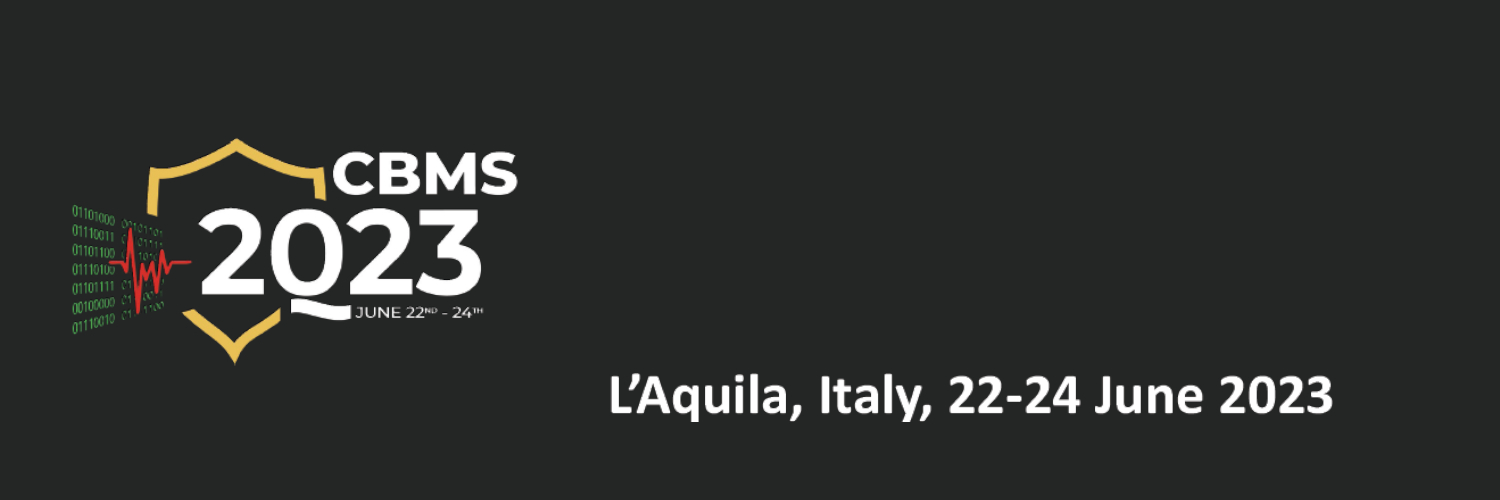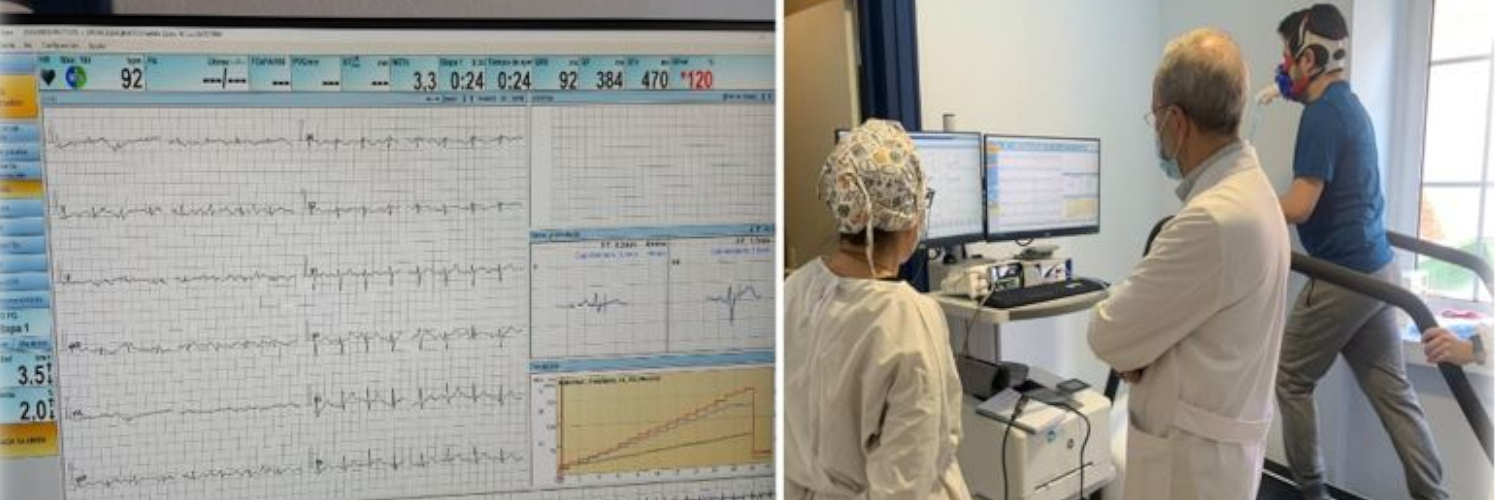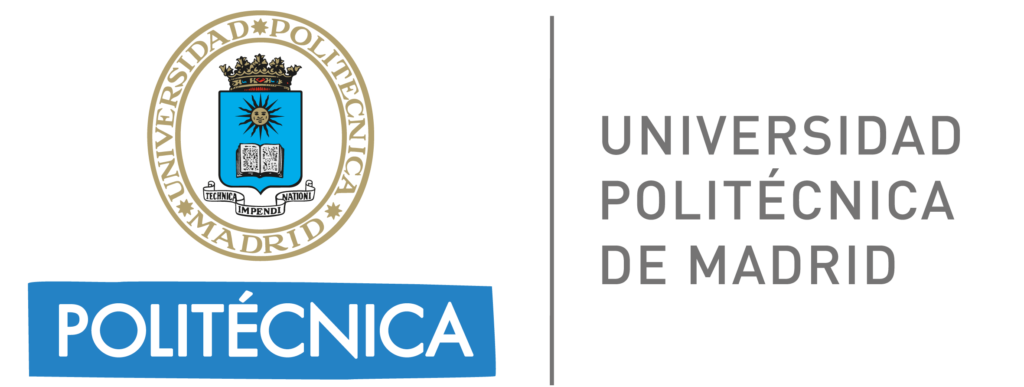This conference brought together in person, after two years of virtual celebration, representatives of the research groups that make up the CIBER-BBN, and were able to share work and experiences in their respective fields of research.
The CIBER-BBN group led by Mª Elena Hernando and J. Javier Serrano has 16 UPM researchers, all of them linked to UPM Health Tech. A committee formed by Mª Elena Hernando, Javier Serrano and Antonio Cobo presented in both posters the latest advances of the different groups that make up their group.

Works highlighted in this presentation:
- Gema García: Diabetes prediction & clustering, proyeto HTx (Next Generation Health Technology Assessment).
- Mª Elena Hernando, Artificial Pancreas / Adherence to treatment in endocrinology diseases
- Enrique J. Gómez, Neurorehabilitation & Brain Health. / Telemedicine in cancer, Proyecto ALIBIRD / Telemedicine in HIV, Proyecto EmERGE
- Patricia Sánchez, Clinical simulation & medical images.
- José Javier Serrano, Bioinstrumentation and Nanomedicine Laboratory
- Elena Villalba, Ageing Lab
- Ernestina Menasalvas, Medical Data Analytics (MEDAL) Laboratory
- Gustavo Guinea, Biomaterials and Regenerative Engineering Lab
CIBER-BBN
CIBER is the Centro de Investigación Biomédica en Red, M.P, CIBER, a public research consortium created by the Instituto de Salud Carlos III (ISCIII) that concentrates interdisciplinary and multi-institutional research efforts and resources, generating knowledge networks formed by public and private research centers.
The CIBER, in its thematic area of Bioengineering, Biomaterials and Nanomedicine, is the CIBER-BBN, currently formed by 45 research groups selected on the basis of their scientific excellence, working mainly within three scientific programs: 1. Bioengineering and Medical Imaging, 2. Biomaterials and Advanced Therapies and 3. Nanomedicine.
CIBER-BBN UPM
The group co-directed by Mª Elena Hernando and J. Javier Serrano has the code CB06/01/0051 and its lines of work are the following:
- Telemedicine and connectivity with medical devices. Applications: diabetes, neurorehabilitation, HIV, elderly people, promotion of healthy lifestyles, prevention of obesity and cardiometabolic risk
- Artificial Pancreas
- Neurorehabilitation and Brain Health engineering: Modeling of rehabilitation processes; monitoring of cognitive and physical rehabilitation; multimodal interaction in brain health
- Surgical training: Technological solutions for a more active and integrative training of surgical skills
- Technologies to help surgeons in the operating room under the paradigm of guided surgery by image and video
- Brain oscillatory activity: Understanding of cognition and brain disorders; Brain basis of cognitive function in healthy people and patients with neurological and psychiatric diseases
- Interaction of brain functions with pulsed electromagnetic fields of very low frequency and intensity; DTI brain pain – MRI function in transgenic mice; Magnetic field stimulation to improve the growth of neurites
- Systems for the inclusion of blind people
- Development of low cost gravimetric biosensors, devices for electromedicine
- Advanced biomedical imaging technologies: Biomarkers in neuroimaging in aging, dementia, brain damage and brain health
- Technologies for the promotion of Active and Healthy Aging: non-intrusive monitoring and intervention based on physical exercise to prevent frailty and disability in the elderly
- Cognitive computation: knowledge discovery and natural language processing to obtain predictive/descriptive models of medical data. Prediction of metabolic variables, extraction of patterns in Electronic Health Records and analysis of neuro-physiological data. Applications: Alzheimer’s, oncology, diabetes, neurorehabilitation, mental health, brain-computer interfaces and active aging
- Biomaterials and Regenerative Engineering: Bio-inspired fibers for biostructural prosthesis applications; Fibroin gels for cell encapsulation and as drug delivery systems; Functionalization of biomaterials by deposition of biofunctional thin films
- Application of atomic force microscopy to multiscale characterization: molecular, cellular and tissues
- Medical instrumentation: technologies for induction of cell death in cancerous tissues mediated by nanoparticles
- Development of biofunctionalized nanomaterials for applications related to neurodegenerative diseases







